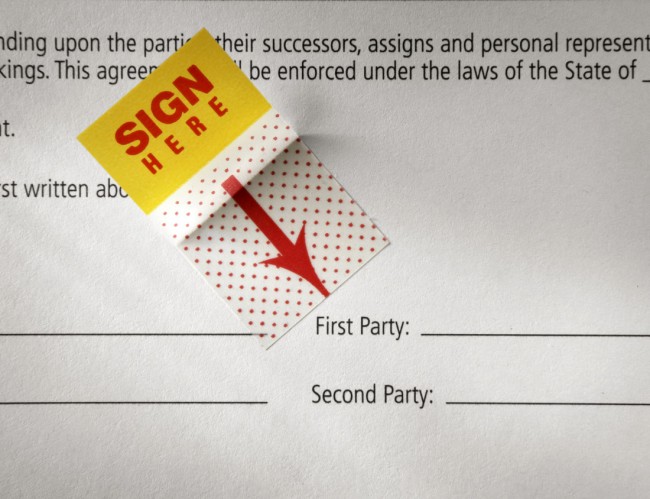Show posts for: Executive Compensation
-
 Read more
Read moreCompanies want to attract talented leadership, and protections for officers and directors against lawsuits can be part of the total package.
This is one reason why many businesses incorporate in Delaware—Delaware law provides significant assistance to officers and directors who are named in legal proceedings connected to their corporate role. Delaware courts don’t hesitate to uphold this protection when circumstances warrant. And in Horne v. OptimisCorp, the Delaware courts again vindicated an officer’s broad rights to indemnification under Delaware law.
-
 Read more
Read moreIf you're an employee and you work more than 40 hours a week, you typically have the right to receive time-and-a-half overtime pay for those extra hours.
But there's a significant exception to this rule: it does not apply to white-collar workers, such as executives. As summarized on the Department of Labor's website, to be considered a white-collar worker and thus exempt from the overtime requirement, you have to be paid a salary and not by the hour; you have to make more than $455 per week; and you have to work in a certain kind of job, such as a managerial or professional role.
-
 Read more
Read moreIn lawsuits over contracts, parties sometimes assert defenses that contracts are voidable or void. A voidable contract is one as to which the party should have a choice as to whether it is enforceable or not; for example, when a 17-year-old (a legal minor) buys a car, he may have the option to choose whether to abide by the deal. By contrast, a void contract is one that is illegal because it violates the law or public policy. No one—neither hit man nor jilted spouse—can enforce a contract to commit murder.
The doctrine of void contracts arose recently in an employment case in Florida, Griffin v. ARX Holding Corporation. The plaintiff in the case was Nicholas Griffin. Griffin had a blemish on his resume: in 1998, he had pleaded guilty to extortion.
-
 Read more
Read moreAs employees of the New York-based Chobani yogurt plant filed into work last Tuesday, they were met with sealed, white envelopes containing a sweet financial surprise.
Little did they know, the owner and CEO, Hamdi Ulukaya, had been working with the human resources consulting firm, Mercer, to hatch a plan to transfer 10 percent of his stock in the company to roughly 2,000 full-time employees.
-
 Read more
Read moreWhen employees and employers are approaching the end of an employment relationship, they should consider their existing rights and how their conduct may impact those rights. A recent decision from the Minnesota Court of Appeals demonstrates how one hasty email can change everything.
Beginning on January 1, 2010, LifeSpan of Minnesota, Inc. employed the plaintiff in the case, Mark Sharockman, as its chief financial officer and executive vice president. Mr. Sharockman’s three-year employment agreement with LifeSpan provided, among other things, that he would receive annual pay increases that were at least equal to the average pay increases granted to the other two executive officers.
-
 Read more
Read moreThe turn of the calendar is always a good time to reflect on what has come before and preview what lies ahead. In this post, we count down our most popular posts of 2015 about executive disputes. Later, we’ll look at what to expect in 2016.
-
 Read more
Read moreIt’s an obvious best practice to put the terms of an employment agreement in writing. Equally obvious is the notion that the writing should be complete, whether in a single document or with reference to other items, such as employee manuals or company-wide incentive plans.
However, it’s not always obvious which documents make up an employment agreement.
Consider the recent decision issued by the United States District Court for the District of California in the case of Lenk v. Monolithic Power Systems, Inc.
-
 Read more
Read moreA contract between an executive and an employer does not always have to be in writing.
Sometimes, employees can enforce oral promises. Agreements can also be implied based on the parties’ conduct, even when no one made a promise, either in writing or orally.
But contracts that aren’t in writing can be much harder to enforce, as the Third Circuit’s recent decision in Steudtner v. Duane Reade, Inc. shows.
-
 Read more
Read moreWhen an executive and a company enter into a lucrative severance package, those benefits aren’t necessarily ironclad.
As we covered in this June 2014 post, when a company declares bankruptcy, its trustee can ask the court to allow the company to avoid its executives’ severance rights.
F-Squared Investments Inc. is now seeking to do precisely that. In late October, F-Squared moved to reject its separation agreement with former CEO Howard Present, seeking authority “to avoid the financial burden” of making a $500,000 payment to him and to cease the accrual of his COBRA payments.
Mr. Present and F-Squared have had a troubled couple of years.
-
 Read more
Read moreIn the corporate world, the treats offered to executives can be as sweet as stock incentives and cash bonuses. But the tricks can be as sour as individual liability for wrongdoing and salary disgorgement.
NJ Supreme Court Makes It Easier For Employers To Take Back Executive Salaries
Lately, we’ve been discussing the Yates Memo and the alarms it must be sounding in corporate board rooms across the country. In a similar vein, the New Jersey Supreme Court offered little comfort to spooked executives when it recently decided to broaden the remedies available to employers who seek disgorgement of former high-level employees’ salaries.
As the regulatory and business environments in which our clients operate grow increasingly complex, we identify and offer perspectives on significant legal developments affecting businesses, organizations, and individuals. Each post aims to address timely issues and trends by evaluating impactful decisions, sharing observations of key enforcement changes, or distilling best practices drawn from experience. InsightZS also features personal interest pieces about the impact of our legal work in our communities and about associate life at Zuckerman Spaeder.
Information provided on InsightZS should not be considered legal advice and expressed views are those of the authors alone. Readers should seek specific legal guidance before acting in any particular circumstance.
Contributing Editors

John J. Connolly
Partner
Email | +1 410.949.1149

Andrew N. Goldfarb
Partner
Email | +1 202.778.1822

Sara Alpert Lawson
Partner
Email | +1 410.949.1181

Nicholas M. DiCarlo
Associate
Email | +1 202.778.1835




